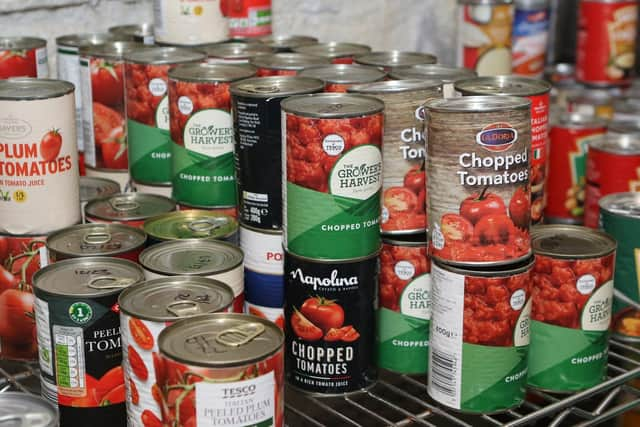Poverty isn't a short-term crisis, it is a long-term trend - Ben Ryan, Church of England
Rising interest rates, inflation, threats of further cuts to public services to balance the books, all of these are loading up more problems, the worst of which will not hit for several months.
It is not simply unhelpful, but bordering on negligent then, to be on our fourth Chancellor since July (there were only three in total from the 1997 election to 2016).
Advertisement
Hide AdAdvertisement
Hide AdAt a time when people need serious help from a stable and responsible government, it is hard to escape the impression that everything is in total chaos.


It is crucial to remember too that in many ways ‘crisis’ is the wrong word. Crisis conjures up images of a short term immediate problem. That is not really what we are seeing.
While it is true that there are new circumstances (most notably the war in Ukraine has spiked global gas prices, driving up inflation and energy bills), it would be more accurate to say that what we are seeing is a new and worrying spike on top of a very long term trend.
If you take wages, for example, then the truth is that in real terms the overwhelming majority of people have been on essentially stagnant wages for at least the last fifteen years. This at a time when other forms of support in the welfare state were dramatically pared back during the austerity period and when other costs have been increasing.
Advertisement
Hide AdAdvertisement
Hide AdThe Church, along with many other civil society groups, does not need to be told the statistics to recognise the reality – we’ve seen it in the demand for services, in the families in our communities who have become desperate, and in the struggle to meet those needs.
In 2011, a survey of social action in the Church of England found that around a third of churches were supporting a foodbank, this included a range of approaches, from hosting the foodbank in the church, providing volunteers, regularly collecting food, providing funding and other approaches. In 2015, this had increased dramatically to around two thirds of churches as austerity cuts hollowed out the support provided by local authorities.
Last year it was up to around four in five churches supporting a foodbank. That includes the full range of churches from inner city to rural and from areas of high deprivation to wealthy areas.
We know too that it is not just the number of foodbanks but the demand for them. According to research for the Trussell Trust’s latest State of Hunger report, food banks in the Trussell Trust’s network distributed 61,000 emergency food parcels in 2010/11, rising to 2.5 million in 2020/21. There has been a 128 per cent increase in need since 2015.
Advertisement
Hide AdAdvertisement
Hide AdSo long has this reality of foodbanks been with us now that I fear sometimes people have become immune to the horror of that reality. That in a country that by global standards is among the most developed and wealthy in the world and yet every year an increasing number of people cannot afford to feed themselves and their family.
Former Prime Minister Gordon Brown has observed that something has changed in the fabric of our society. It used to be, in his observation, that the safety net was found in the welfare state. Today it is foodbanks.
It's not just food of course which is proving difficult. The cost of energy, even given the government’s interventions, is going to prove crippling for many.
Often lost in the discussion of energy bills is that poorer households on average spend a bigger proportion of their income than richer ones on gas and electricity. Institute for Fiscal Studies research indicates that, although the poorest tenth of households spend an average of 4.8 per cent of their income on gas, a tenth of this group spend 12 per cent or more of their income on gas.
Advertisement
Hide AdAdvertisement
Hide AdIt is staggering in this context that there is even a discussion to be had about whether benefits should be increased in line with inflation. The alternative is quite simply to drive huge numbers of people into appalling poverty.
This winter churches and other civil society groups will again do what they can to fill the gaps. We will be providing still more food banks, opening up warm spaces for people to gather in, running debt advice services, credit unions, clothes banks, holiday clubs and all the other charitable entreprises that have become the last safety net for too many people. But the fear is that we were already doing all these things, and in many places those services were already stretched to breaking point. The government is right that radical intervention is needed somewhere and soon – but it must first and foremost look to keep even more families falling into severe poverty.
Ben Ryan is policy adviser to the Church of England.